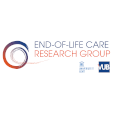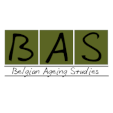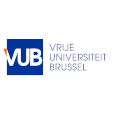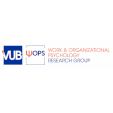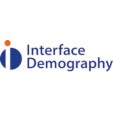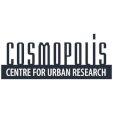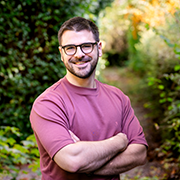Abstract project
Background
Increasing life expectancy, aging populations and growing prevalence of chronic and life-threatening conditions have put pressure on our professional healthcare system, resulting in increased workloads, high burnout prevalence, staff shortages and financial constraints. There is a growing realisation that merely increasing available healthcare professionals and improving existing health services will be insufficient in meeting these societal challenges. At the same time, societal developments such as individualisation, social fragmentation, decreasing nuclear family size and two-earner households have distanced us from our communities and have diminished the capacity of cities and communities to care for their members.
We cannot talk about chronic and life-threatening conditions without talking about death, dying and loss. It happens to all of us and affects the entire social environment of those in need. Today, death and dying are increasingly medicalised. However, whereas the medical-professional sector treats physical comorbidities of illness and loss, it is the community that carries the care burden for the often-neglected social comorbidities of serious illness (e.g. loneliness, mental health problems, existential suffering, financial pressure). There is therefore a dire need to reconceptualise events and experiences such as death, dying, loss and grief as public health issues, requiring an integrated community/systems approach: a “Compassionate Cities and Communities” approach.
A compassionate community aims to improve ideas, circumstances, and experiences around care, illness, death, dying, and bereavement. Despite initiatives to develop Compassionate Communities internationally, there is a lack of evidence on best practices, fitting scientific tools and evidence-based methods for developing and evaluating compassionate communities in Belgium and Europe.
Aim
The objective of COCO is to have a pioneering role by developing, implementing and evaluating the Compassionate Communities model in Flanders, Belgium, Europe and beyond. It will run a comprehensive and interdisciplinary research programme combining fundamental research and action research. The main goal of COCO is to examine the processes that lead to the successful development of a Compassionate Community in different contexts.
Methods
In order to realise this, COCO brings eight research teams, all contributing specialised scientific expertise, together in a large interdisciplinary consortium. COCO will act as an interdisciplinary consortium of 1) scientific expertise in compassionate communities at the VUB, 2) valorisation through close collaboration with practical and policy organisations while developing interventions and programmes that lead to lasting change on empathic behaviour and support within our society.
Results
COCO will add a strong evidence-base to the Compassionate Communities and Public Health and Palliative Care literature. The consortium will develop into an interdisciplinary centre of expertise and function as leading pioneer in Compassionate Community research and practice at the local, national and European level. It will furthermore serve as an interdisciplinary platform for academic and societal collaboration. Expected deliverables of the consortium are the development of new research projects through external grant funding, pioneering publications in high-impact journals across several disciplines, and the development of a strong and public knowledge repository on compassionate communities.
Partners
COCO brings together 8 research teams from 4 different VUB-Faculties from the three overarching research domains, 3 external societal partners and 1 international scientific reflection committee.
At the Faculty of Medicine & Pharmacy (University Medical Campus):
- The End-of-Life Care Research Group (EoLC), VUB
At the Faculty of Psychology and Educational Sciences:
- Belgian Ageing Studies (BAS), VUB
- Clinical and Life Span Psychology (KLEP) and Brussels University Consultation Centre (BRUCC), VUB
- Work & Organizational Psychology (WOPS), VUB
- Brussels Innovation and Learning Diversity (BILD), VUB
At the Faculty of Social Sciences & Solvay Business School:
- Tempus Omnia Revelat (TOR), VUB
- Interface Demography (ID), VUB
At the Faculty of Science and Bio-Engineering Sciences:
- Centre for Urban Research (Cosmopolis), VUB
Project group
Core management group
Prof. dr. Luc Deliens (EoLC) – Promotor-spokesperson
Prof. dr. Liesbeth De Donder (BAS) – Promotor-spokesperson
Prof. dr. Joachim Cohen (EoLC) – Co-promotor
Prof. dr. Kenneth Chambaere (EoLC) – Co-promotor
Prof. dr. Sarah Dury (BAS) – Co-promotor – Coordinator
Dr. Steven Vanderstichelen (EoLC) – Postdoc researcher - Coordinator
Other consortium members
Co-promotors
Prof. dr. Eva Dierckx (BAS) – Co-promotor
Prof. dr. Dominique Verté (BAS) – Co-promotor
Prof. dr. Christiaan Schotte (BRUCC/KLEP) – Co-promotor
Prof. dr. Peter Theuns (BRUCC/EXTO) – Co-promotor
Prof. dr. Imke Baetens (BRUCC/KLEP) – Co-promotor
Prof. dr. Sara De Gieter (WOPS) – Co-promotor
Prof. dr. Koen Lombaerts (BILD) – Co-promotor
Prof. dr. Free De Backer (BILD) – Co-promotor
Prof. dr. Bram Spruyt (TOR) – Co-promotor
Prof. dr. Filip van Droogenbroeck (TOR) – Co-promotor
Prof. dr. Christophe Vanroelen (ID) – Co-promotor
Prof. dr. Michael Ryckewaert (Cosmopolis) – Co-promotor
Postdoc researchers
Dr. An-Sofie Smetcoren (BAS) – Postdoc researcher
Dr. Nele Aernouts (Cosmopolis) – Postdoc researcher
Dr. Inge Debast (BRUCC/KLEP) – Postdoc researcher
Partners
